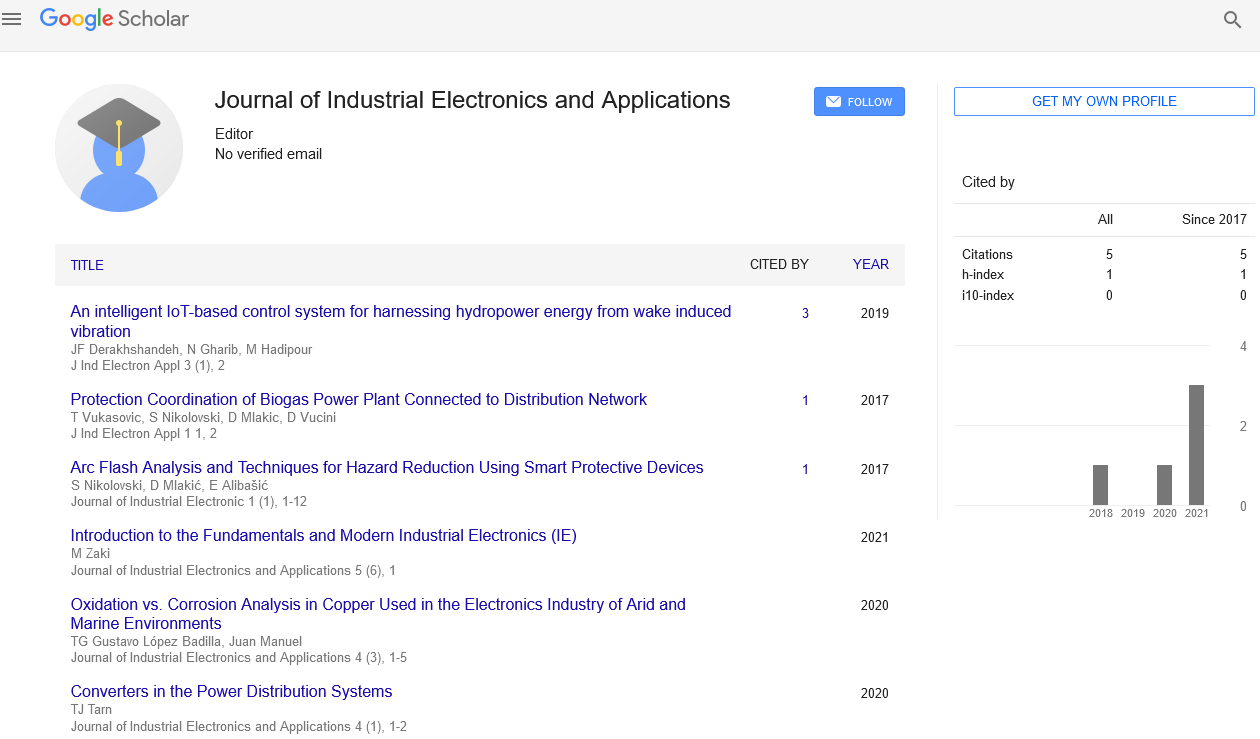Perspective, J Ind Electron Appl Vol: 7 Issue: 2
The Power of Block-chain in Logistics
Andrew Bottani*
1Department of Business Administration, University of Gothenburg, Gothenburg, Sweden
*Corresponding Author: Andrew Bottani,
Department of Business Administration,
University of Gothenburg, Gothenburg, Sweden
E-mail: bottandrewshian@gu.se
Received date: 29 May, 2023, Manuscript No. JIEA-23-107948;
Editor assigned date: 31 May, 2023, PreQC No. JIEA-23-107948 (PQ);
Reviewed date: 14 June, 2023, QC No. JIEA-23-107948;
Revised date: 22 June, 2023, Manuscript No. JIEA-23-107948 (R);
Published date: 29 June, 2023, DOI: 10.4172/JIEA.1000028.
Citation: Bottani A (2023) The Power of Block-chain in Logistics. J Ind Electron Appl 7:2.
Description
Supply chain management is a complex and intricate process that involves the coordination of various stakeholders, from manufacturers and suppliers to distributors and retailers. The traditional supply chain often faces challenges such as lack of transparency, inefficiency, and vulnerability to fraud and counterfeiting. However, the emergence of block-chain technology has paved the way for transformative applications in supply chain management, offering solutions to these long-standing issues. In this perspective article, we delve into the potential of industrial block-chain applications in supply chain management and how they are reshaping the landscape of global trade and commerce.
Understanding block-chain technology
Block-chain is a distributed ledger technology that allows data to be securely and transparently recorded and shared across a network of computers. Each record, or "block," in the chain is linked to the previous one using cryptographic techniques, creating an immutable and tamper-resistant record of transactions or data. This decentralized nature eliminates the need for a central authority, ensuring trust and transparency among all participants.
Transparency and traceability in supply chains
One of the most significant benefits of block-chain in supply chain management is its ability to provide transparency and traceability. Every step in the supply chain, from raw material sourcing to the final product delivery, can be recorded on the block-chain. This transparency enables stakeholders to track the movement and origin of goods, ensuring compliance with regulations, and verifying the authenticity of products.
Reducing counterfeiting and fraud
Counterfeiting is a rampant issue in many industries, leading to revenue loss and reputational damage for companies. Industrial blockchain applications provide a solution by creating a secure and tamperproof record of product provenance. Consumers can scan QR codes or use other methods to access the block-chain and verify the authenticity of products, reducing the risk of purchasing counterfeit goods.
Smart contracts for automated operations
Block-chain-based smart contracts are self-executing contracts with predefined conditions. In supply chain management, smart contracts can automate various processes, such as payment settlements, inventory management, and compliance checks. By eliminating the need for intermediaries and manual intervention, smart contracts enhance operational efficiency and reduce transaction costs.
Supply chain financing and improved cash flow
Traditional supply chain financing often involves delays and inefficiencies in payment processing. With block-chain-enabled supply chain financing, financial institutions can access real-time data on transactions and inventory levels, enabling faster and more accurate lending decisions. This improved cash flow benefits both suppliers and buyers, fostering stronger business relationships.
Sustainability and ethical sourcing
Consumers are increasingly conscious of the environmental and social impact of the products they purchase. Block-chain technology allows companies to provide transparent information about the sourcing and production processes, ensuring ethical and sustainable practices. This transparency enhances consumer trust and loyalty towards brands committed to responsible sourcing.
Real-time inventory management
Inventory management is a critical aspect of supply chain management. Blockchain-based systems enable real-time updates of inventory levels, reducing the risk of stockouts and overstocking. This optimization of inventory management leads to cost savings and improved supply chain responsiveness.
Streamlining customs and compliance
International trade involves complex customs processes and regulatory compliance. Blockchain applications in supply chain management streamline these processes by providing a secure and immutable record of trade-related documents, reducing paperwork, delays, and the risk of errors.
Supply chain resilience
The COVID-19 pandemic exposed vulnerabilities in global supply chains. Blockchain technology can enhance supply chain resilience by providing a decentralized network that allows for faster adaptation and alternative sourcing. With transparent data, supply chain managers can identify potential disruptions and swiftly implement contingency plans.
Collaborative supply chain networks
Block-chain facilitates collaboration among multiple stakeholders in a supply chain network. By sharing data on a common platform, participants gain valuable insights into the overall supply chain performance. This collaborative approach fosters a spirit of cooperation, improving communication, and problem-solving across the supply chain ecosystem.
Conclusion
Block-chain technology has the potential to revolutionize supply chain management, offering solutions to the challenges faced by traditional supply chains. From transparency and traceability to reduced counterfeiting, smart contracts, and enhanced supply chain resilience, industrial block-chain applications are transforming the way goods are produced, distributed, and consumed. As we embrace the potential of block-chain in supply chain management, it is essential to address challenges related to scalability, interoperability, and regulatory frameworks. Industry stakeholders, policymakers, and researchers must work collaboratively to ensure the successful integration of block-chain technology into existing supply chain infrastructures. With the increasing adoption of block-chain applications in supply chain management, we can envision a future of transparent, efficient, and sustainable supply chains that benefit businesses, consumers, and the global economy alike.
 Spanish
Spanish  Chinese
Chinese  Russian
Russian  German
German  French
French  Japanese
Japanese  Portuguese
Portuguese  Hindi
Hindi 